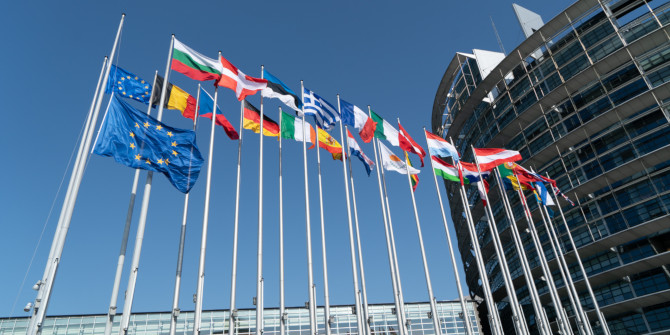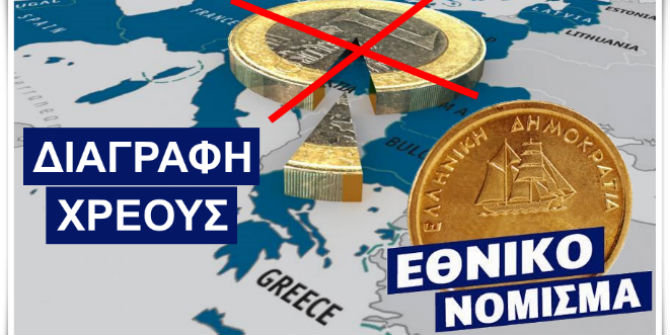 Free movement of persons is conventionally seen as a means to promote European integration. A closer look at its dynamics suggests it should be reassessed. Gareth Davies argues that a policy whose fundamental goal is to allow people to choose where to live is really a mechanism for social fragmentation, allowing Europeans to cluster into groups of the like-minded.
Free movement of persons is conventionally seen as a means to promote European integration. A closer look at its dynamics suggests it should be reassessed. Gareth Davies argues that a policy whose fundamental goal is to allow people to choose where to live is really a mechanism for social fragmentation, allowing Europeans to cluster into groups of the like-minded.
Charles Tiebout’s theory of sorting drew on the idea that if jurisdictions vary in the policies they adopt, and individuals are free to move, then people with similar policy preferences will end up clustering together – which he called sorting. In some contexts that could be efficient and desirable, but suppose the sorting were to take place according to political views? It would then be a threat to the cohesion of society.
Bill Bishop explored this idea in the United States in his book The Big Sort. The economic and linguistic barriers to movement in the US are pretty low, making it possible for Americans to take ideology – views on things such as sexuality, religion, and redistribution – seriously as a factor in deciding where to live. He suggested that Democrats and Republicans have, over recent decades, increasingly sorted themselves into homogenous communities, so that the US has become a series of adjacent monocultures, with mutual alienation and political polarisation as a result. His work has been widely discussed, with considerable methodological nuances and challenges put forward, but with the underlying phenomenon of sorting pretty widely accepted.
For some reason, EU scholarship and policy has paid no attention to the idea that this could happen in Europe. The Union encompasses significant ideological variation both between and within member states, creating the potential conditions for an ideological exodus of the dissatisfied to their personal promised land, and a resulting sort. Yet the fact that Europe is so economically unequal, and so culturally and linguistically diverse, perhaps makes it seem unlikely that significant ideological migration will ever take place. Europeans just go where the jobs are.
Is migration of the young and liberal affecting member states?
This scepticism about sorting is too easy. For one thing, sorting does not have to happen by conscious choice – it can also happen by correlation. The major mobility flows in the EU are broadly from a socially conservative South and East to a more secular, socially liberal, and individualistic North and West. It just so happens that a characteristic of voluntary migrants generally is that they are relatively individualistic, and a characteristic of intra-EU mobile citizens is that they tend to be young, relatively educated, and almost certainly therefore relatively socially liberal and secular. Whatever their motivations for moving, they are likely to end up somewhere where the dominant ideological views are closer to their own.
For another thing, it is likely that even fairly small amounts of ideological redistribution can affect political balance and tipping points – in politics a few percent is usually enough to get excited about. Hence it is not so implausible to suggest that free movement may be helping quasi-authoritarian governments stay in power in Poland and Hungary. It is essentially offering natural opponents the option of exit, removing them from functional opposition if they leave and probably tempering their resistance – since they know that the exit option is there – if they remain.
It is an intriguing, if speculative thought, that mobility flows may also be affecting destination states. When voluntary migrants share the values of their host state, they not only reinforce those values, but also contribute to local self-satisfaction and ideological insularity. See Brexit Britain.
Can an ideologically sorted EU be governed?
If this kind of sorting does take place, the consequences for the EU are problematic. For member states, it may increase domestic harmony and make them easier to govern. However, as internal dissent and ideological diversity is reduced, member states will become more distant and alienated from each other. A logical conclusion would be that they will find it harder to understand each other, and will be less motivated to try, with consequences for their ability to work together, and hence for the governability of the EU.
In a situation of significant sorting, member state motivation for European co-operation would be reduced to practical cross-border issues, rather than integration as such. That is not the vision of the Treaties, but it is also, in a world of policy spillover, not obviously a stable situation. If disintegration begins, it may have its own coherent, but destructive, momentum: if we can’t work together all the way, then we can’t work together at all.
It is a terrible irony that the more the EU succeeds in its core policies, the more it creates the circumstances for its own demise: if economic opportunity spreads, and barriers to movement come down, as Brussels most surely hope, then the foundations are there for a destructive social fragmentation. Perhaps there is a logic to this: if all the corners of Europe offer life-chances to those who choose them, then once everyone has chosen the corner that suits them best, Europe’s most profound work is done, and it is, to a great degree, redundant.
Rethinking free movement
This shows why scholars should give more attention to sorting. Whether or not it is imminent at any great scale, and whether or not it contributes to current polarisation within the EU – both of which deserve empirical investigation – it demands that we retheorise some aspects of the EU. Free movement can no longer be seen as a policy which inherently contributes to integration. Rather, its most profound dynamic is that it releases Europeans from communities of fate and allows them to form communities of choice.
The bounded national community containing ideological diversity is replaced by the voluntarily bounded ideological community, containing national diversity – which in the rationality, democracy and inherently political quality of its divisions, would seem to be a harder European landscape to manage and cohere. Opening national borders is a route to consensual fragmentation. It does not bring people together, but allows them to move apart.
For more information, see the author’s accompanying article in the Journal of European Integration
Please read our comments policy before commenting.
Note: This article gives the views of the author, not the position of EUROPP – European Politics and Policy or the London School of Economics. Featured image credit: Ivan Crivellaro (CC BY 2.0)
_________________________________
 Gareth Davies – Vrije Universiteit Amsterdam
Gareth Davies – Vrije Universiteit Amsterdam
Gareth Davies is Professor of European Law at the Vrije Universiteit Amsterdam.






As always extremely interesting and thought-provoking. But I do not quite understand the practical implications of this blog. Should we curb free movement rights so that people are more likely to stay in the communities they had to the good or bad luck to be born in? Critique of Whig liberalism is obviously justified. But how would progressive communitarians respond if they were criticised for lending support to authoritarian traditionalists? It is about as plausible as accusing free movement rights of causing segregation, disintegration and indeed Brexit.